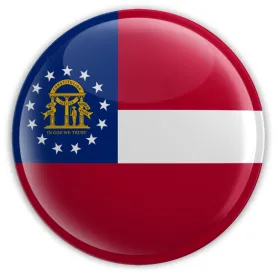On March 23, 2020, Atlanta Mayor Keisha Lance Bottoms issued Executive Order 2020-21 (E.O. 2020-21), ordering all individuals living in the City of Atlanta to stay home “to ensure that the maximum number of people self-isolate . . . to slow the spread of COVID-19 to the maximum extent feasible.” The order permits Atlanta citizens to leave home only (1) for “Essential Activities;” (2) to engage in “Essential Governmental Functions;” (3) to operate “Essential Businesses;” or (4) to carry out activities as specifically included within the order, including engaging in “Minimum Basic Operations,” as further discussed below. E.O. 2020-21 further directs all business to cease “non-essential” operations at physical locations within the City of Atlanta, and prohibits all “non-essential” gatherings of any number.
E.O. 2020-21 goes into effect on March 24, 2020, at midnight and according to Mayor Bottoms will remain in place for at least 14 days.
E.O. 2020-21 defines “Essential Activities” to include:
-
performing tasks essential to one’s health and safety, or to the health and safety of household members (including pets);
-
obtaining necessary services or supplies for themselves and their family/household, or to deliver those services or supplies to others;
-
engaging in outdoor activity, provided one complies with social distancing requirements;
-
performing work providing essential products and services at an essential business; and
-
caring for a family member or pet in another household.
E.O. 2020-21 also permits Atlanta citizens to leave home to work for or obtain services at any “Healthcare Operations” such as hospitals, clinics, dentists, pharmacies, mental health providers, or other related services. “Healthcare Operations,” however, does not include fitness and exercise gyms or other similar facilities.
E.O. 2020-21 also exempts workers who leave home to perform work necessary to the operations and maintenance of “Essential Infrastructure” such as public works construction, airport operations, utilities, roads and highways, public transportation, taxi/rideshare, solid waste collection/removal, internet, and telecommunications systems. First responders, emergency management personnel, court personnel, and law enforcement workers are “categorically exempt from this Order.”
The order defines “Essential Government Functions” as all services needed to ensure the continuing operations of government agencies and provide for the health, safety, and welfare of the public. Such workers are also exempt from the order.
Essential Businesses
E.O. 2020-21 defines “Essential Businesses” to include:
-
Healthcare operations and essential infrastructure
-
Grocery stores, farmers’ markets, farm and produce stands, supermarkets, food banks, convenience stores, and other establishments engaged in the retail sale of canned food, dry goods, fresh fruits and vegetables, pet supply, fresh meats, fish, and poultry, and any other household consumer products
-
Food cultivation, including farming, livestock, and fishing
-
Businesses that provide food, shelter, and social services, and other necessities of life for economically disadvantaged individuals
-
Newspapers, television, radio, and other media services
-
Gas stations and auto-supply, auto-repair, and related facilities
-
Banks and related financial institutions
-
Hardware stores
-
Lodging businesses (e.g., hotels, motels, and conference centers)
-
Plumbers, electricians, exterminators, and others who provide services that are necessary to maintaining the safety, sanitation, and essential operation of residences, essential activities, and essential businesses
-
Businesses providing mailing and shipping services, including post office boxes
-
Educational institutions (public and private) for purposes of facilitating distance learning or performing essential functions
-
Laundromats, dry cleaners, and laundry service providers
-
Restaurants and other facilities that prepare and serve food, but only for delivery and carryout (except for cafeterias in hospitals, nursing homes, or similar facilities)
-
Businesses that supply products needed for people to work from home
-
Businesses that supply other essential businesses with the support or supplies necessary to operate
-
Business that ship or deliver groceries, food, goods, or services directly to residences
-
Home-based care for seniors, adults, or children
-
Residential facilities and shelters for seniors, adults, and children
-
Professional services, such as legal or accounting services
-
Childcare facilities
-
Utility, water, sewer, gas, electrical, oil refining, roads and highways, railroads, public transportation, taxi/rideshare, solid waste collection and removal, internet, and telecommunications systems
Businesses outside the exemptions listed in E.O. 2020-21 will need to act quickly to ensure they are able to comply with the order’s requirement to maintain only “Minimum Basic Operations”—defined as the minimum necessary activities to (1) “maintain the value of the business’s inventory, ensure security, process payroll and employee benefits, or for related functions” and (2) “facilitate employees of the business being able to continue to work remotely from their residences.”




 />i
/>i
